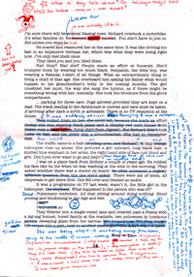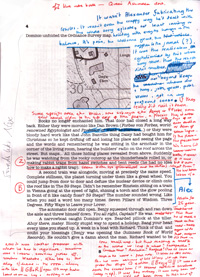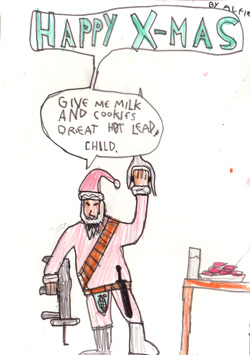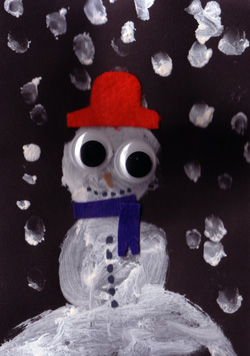thinking about logicomix... perhaps my only criticism is that it perpetuates a myth that one finds more commonly in the arts, that engaging in these kinds of activities (especially ones as demanding and frustrating as the attempt to provide a sound logical foundation for mathematics) can drive its practitioners insane. i think the reverse is true, that whilst mathematics is obviously attractive to those who are good at it, it is also attractive to those people who find in its clarity and detachment a refuge from the complications and discomfort of being human, some of which will doubtless be psychiatric (i think the same is true of many writers, artists and composers who seek a similar refuge from the real world in a little universe of their own devising).
This blog is in a state of suspended animation
I am much more active on twitter (@mark_haddon) and on instagram (@mjphaddon)
this is brilliant and i'm not sure how i missed it. the story of the quest for a logical foundation to modern mathematics in the late 19th and 20th century (and the link between logic and the mental illness from which many of the protagonists suffered), all seen through the lens of bertrand russell's life.

but like all graphic novels (someone has to invent a new term), i can't help feeling sad that the vast amount work that has gone into its production will be read so quickly (i can't even look at chris ware's masterpiece jimmy corrigan, the smartest kid on earth without feeling a kind of sympathetic horror). at least five people were intimately involved in creating logicomix, it will have taken them a very long time indeed and most readers will get through it in the couple of hours.
maybe this doesn't trouble most writers / artists of graphic novels. maybe the ease of reading promises a larger readership which compensates for the lack of commitment demanded by individual readers. maybe those readers re-read more often.
true, a film can take several hundred people several years to make. but there's something impersonal and industrial about most films. true, you spend 90 minutes watching a play, but a good play has an afterlife, bring repeatedly reincarnated in different bodies (and some plays get written very quickly). graphic novels, on the other hand, like novel novels, feel more intimate and singular' a person talking to another person via pieces of paper. and good conversations demand some effort from both sides.
i love good graphic novels but i'm waiting for someone to write one which solves this fundamental problem: how to slow the reader down so they do some work which is commensurate with the work done by the writer / artist.
(see digital prints) i'm not sure why it took me so long to work this out. they're photographs. i wander round taking photographs of things. i bin most of them. i work on some of the others in photoshop. i bin most of the results (the two prints in the previous entry both got binned in the end). i take them to brent at resolution creative and we decide how to print them. it's precisely what you do with photographs. mine just spend a little more time in photoshop.
the first of these (splitter) began life as a photo of a rusted chain on a beach in cornwall. the second (space mountain) began life as a photograph of a large sheet of cardboard i use in the studio to keep paint off the floor.
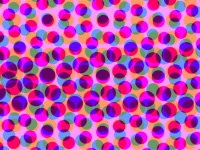
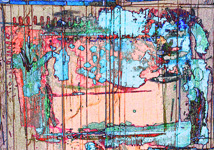
etchings and screenprints and lino prints are three dimensional objects (which is why the printing part of the process is so important). consequently they're fragile. so you window-mount them and put them under glass. if you do this to photographs they can look too precious, as if they're pretending to be something they're not. the advantage of photographs, however, is that they have a completely flat surface so they can, for example, be mounted onto a substrate and coated (i take these to bliss in faringdon where they bond them to alumiunium and seal them with a matt varnish).
there's a really good article in last edition of the london review of books: 'the darwin show' by steven shapin (sadly not online), a critical overview of last year's darwin anniversary mega-fest, which untangles the man, his various legacies and his adoption as a mascot for assorted - often inappropriate - causes (dawkins and darwin, for example, would not have sat comfortably down to tea with one another, though darwin would probably have made more of an effort).
the article contains a particularly interesting passage.
a survey published in nature in 1997 found that 40 per cent of american scientists professed belief in an immortal soul and a prayer-answering god, a figure basically unchanged since 1916. more tellingly still, another survey found that when the claim ‘man gas developed over millions of years from less advanced forms of life, and no god participated in this process’ was put to them, only a bare majority (55 per cent) of american scientists agreed and 40 per cent believed that a Creator was involved in evolutionary change.
t
o say that nothing in biology makes sense except in light of darwinism cannot be the same thing as saying that to be a competent biologist is to have command of, or to agree with, any specific version of evolutionary theory, such as those favoured by dawkins and dennett. I have taught many talented biology students, both in the US and the uk, who could not give a coherent account of evolution by natural selection – teleology remains strikingly popular…it's easy to forget that a belief in evolution by natural selection is not necessary for someone to be a proficient - even brilliant - scientist. but it's that teleology, not god, which prevents many scientists and non-scientists accepting the idea. it's just plain mind-boggling to properly get your head round the idea that life can develop so that it looks, on every level, from blue whale to virus, as if it has been designed, as if it's somehow intentional. we don't even have a word for that kind of process. It's not accident. It's not random. It's not inevitable or pre-determined. even words like complicated and sophisticated imply intention (who complicates? who sophisticates?). it seems to call for some kind of zen koan: undesigned design? unintended intention?
i suspect that this hole in the dictionary (and in the mind) is a sign of something we don't want to think about (or perhaps can't think about). for if life seems both designed and intentional but is neither, perhaps this is true of individual lives, too. we think we are shaping our destinies, we think we have free will, but it merely looks that way.
dawkins says that darwinism leads ineluctably to atheism. i think it leads to something stranger and much more radical.

one of my favourite places in the world, this morning




it's not as fluid, there's no handwriting, it doesn't have that dog-eared, coffee-stained physicality but the great thing about using a mac as notebook is having a near-infinite wastebin for trawling through.
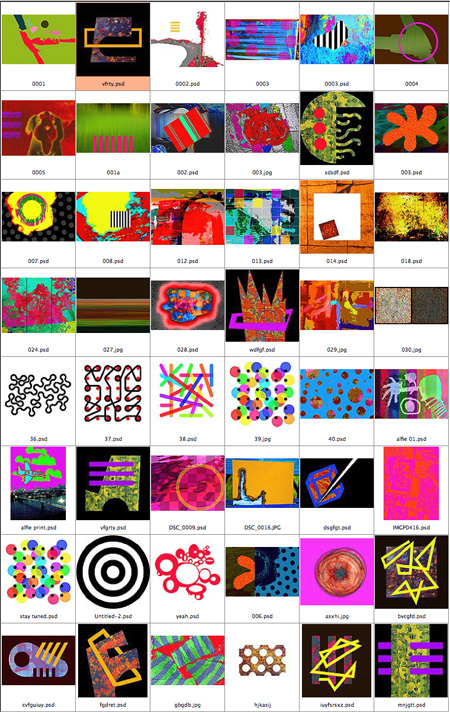
i could look at this picture for a long, long time...
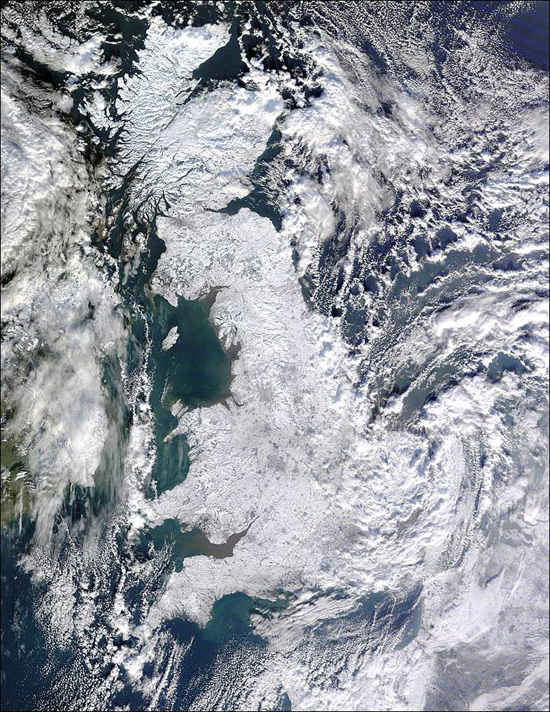
photo: nasa/gsfc, modis rapid response
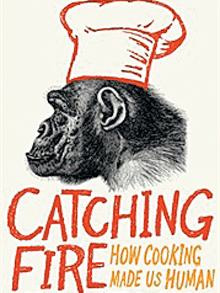
(by richard wrangham). wonderful. an utterly convincing exposition of a brilliantly simple idea which seems somehow obvious in retrospect, about the central role of cooking in human development, dictating everything from brain size and bowel length to the domestication of the dog and our love of the banana. rather like jared diamond's thesis, in guns, germs and steel, that simple geography was central in shaping the nature, spread and inequalities of cultural and technological progress. i've always been fascinated by human pre-history (i vividly remember wanting to be a paleoanthropologist when i grew up) and both books fundamentally changed the way i thought about the subject.

possibly a masterpiece, but let down by a laughably inept translation. if they'd had the druthers they'd have raped them...? he condoles with them...? genitals and wares both used in the singular? i'm off to michael hulse's translation of jelinek's wonderful wonderful life so i can fully appreciate the self-hatred, the abusive sex, the pointless violence and the open sore of Austria's unresolved nazi past without bad english getting in the way.
it probably generates bad voodoo even to say so but a third novel seems to be underway. it feels like push-starting a train. then again it always does.
